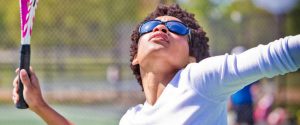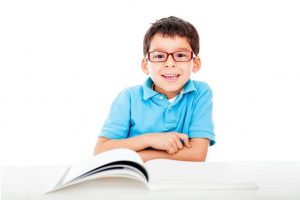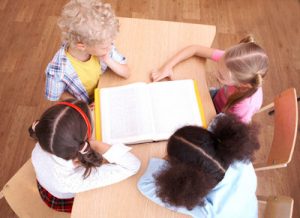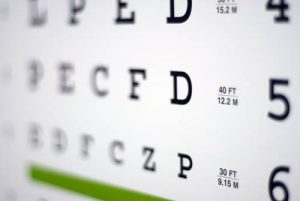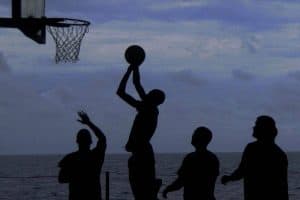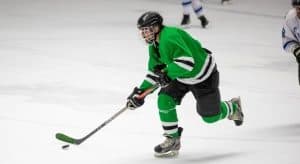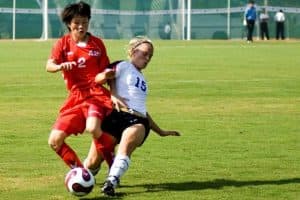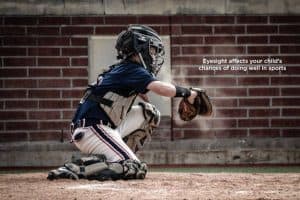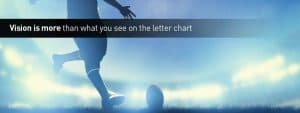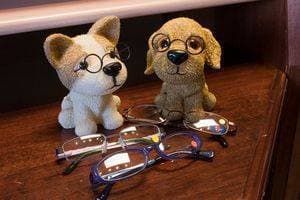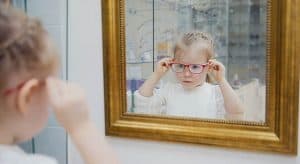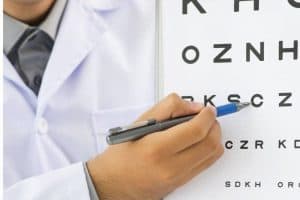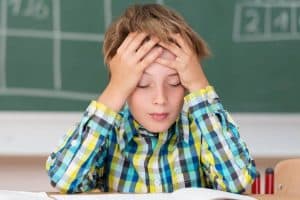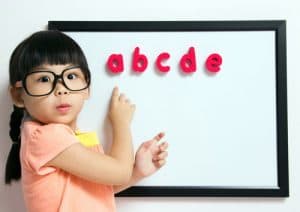What is Visual Information Processing?
Have you been told your child has difficulties with their Visual Information Processing? How can optometrists help? Visual processing describes the way the brain processes
Read More2021 Update: Vision Therapy for Eye Tracking
Over 30% of those diagnosed as having dyslexia have an eye tracking deficit. When a child has a visual processing or perceptual disorder it hinders
Read More2021 Update: Vision Therapy for Visual Efficiency
Reduced visual efficiency can greatly reduce a student’s ability to learn or be an adult’s office productivity. Reduced visual efficiency can negatively impact a person’s
Read MoreVision and Autism: Part 1
Author: Randy Schulman, MS, OD, FCOVD This year marks my 30th year as an optometrist and during all of those years I have seen thousands
Read MoreWhat Are Visual Efficiency Problems?
Poor visual efficiency skills can negatively impact performance in school, at the office, and on the sports field. Understanding and knowing what to look out for can help with early detection and treatment of visual problems – leading to improved school grades and sports achievements.
Read MoreMyopia and Vision Therapy
Vision therapy not only treats lazy eye, eye turn, or learning difficulties, but may also prevent or slow the progression of myopia. While a cure
Read MoreIs Binocular Vision Important for Sports?
Binocular vision is important for athletes, as it impacts their performance. An athlete can improve their visual skills and boost their performance on the field with the help of sports vision training. Binocular vision is the eyes’ ability to focus on an object to create a single image, this is critical for achieving on the sports field.
Read MoreWhich Eye Conditions Can Affect Learning?
According to the College of Optometrists In Vision Development (COVD), 25% of all children have an undiagnosed vision problem impacting their school grades. If your
Read MoreCould a Child with ‘20/20 Sight’ Have a Vision Problem?
Studies have found that 1 out of 4 school children suffer from a vision problem that impacts their learning. If your child has 20/20 vision,
Read MoreHow Do Reading Glasses Help Children?
Has your optometrist prescribed reading glasses for your child? When people think of reading glasses, they generally think of older adults with presbyopia. Reading glasses for children, typically referred to as ‘low plus’ lenses, are not prescribed for the same reason as they are for adults, but rather to support the focusing skills necessary for near vision activities.
Read MoreThe Larry Fitzgerald Story
Have you heard of NFL star Arizona Cardinals wide receiver, Larry Fitzgerald?
He is the second most career leading receiver for total TDs, yards, catches and more, after the legendary Jerry Rice. Larry credits his success on the field to a customized vision therapy program.
Understanding Convergence Insufficiency
Convergence insufficiency (CI) affects up to 15 percent of all school-age children. Convergence insufficiency is a binocular vision condition that affects near vision and eye
Read MoreDo Vision Screenings Assess Functional Vision?
Most vision screenings conducted at schools measure visual acuity, or how well you can see, but unfortunately, do not assess other important aspects of a
Read MoreProtecting Your Child From Digital Eye Strain
How does digital eye strain affect children? In recent years, there has been a significant surge in the amount of time children spend in front
Read MoreCOVID-19 and Computer Vision Syndrome
Author: Dr. Alex Andrich and Patti Andrich The Vision Development Team Coping with COVID-19 may be affecting your vision The American Optometric Association (AOA) defines
Read MoreWhat Is Intermittent Strabismus?
Strabismus, also called an eye turn, can be intermittent or constant— depending on how often it occurs. Intermittent strabismus occurs occasionally, most often during stressful
Read MoreVision Therapy for Adults: Success Stories
Personal stories from adults whose lives have been enhanced with Vision Therapy.
*Names have been changed for privacy protection
Vision Therapy for “Laziness”: Success Stories
Personal stories from parents of children who were mislabeled as “lazy”, when a vision problem was the underlying cause. *Names have been changed for privacy
Read MoreVision Therapy for Fatigue: Success Stories
Real life stories of adults and children who experienced eye fatigue before completing a program of Vision Therapy. *Names have been changed for privacy protection.
Read MoreVision Therapy for Homework Difficulties: Success Stories
Personal stories from parents of children who struggled to complete their homework before completing a program of vision therapy. *Names have been changed for privacy
Read MoreDo I Have Convergence Insufficiency?
Wondering if convergence insufficiency (CI) is impacting your school or work performance? Take this quick quiz to find out. People with CI often experience blurry
Read MoreVision and Learning Difficulties FAQs
These are the ten most frequent questions asked to vision therapy eye doctors.
You may easily find answers to your questions. If you still have questions, contact your nearest eye doctor experienced in children’s vision and vision therapy.
Vision for Basketball
Many have dreamed of netting a 3 pointer the way Stephen Curry can— but did you know that strong visual skills are needed to land
Read MoreVision for Football
Did you know that Larry Fitzgerald, 11 times pro-bowl receiver of the Arizona Cardinals, attributes his success to vision therapy? Football is a sport in
Read MoreVision for Ice Hockey
Your visual skills can affect your ice hockey performance. Wayne Gretzky, known as the “The Great One”, is the leading scorer in NHL history, with
Read MoreVision for Soccer
Soccer skills are dependent on your physical stamina, legs and feet … and also your eyes. Soccer is played in over 200 countries, making it
Read MoreVision for Golf
Strong visual skills are vital for optimal golf performance— from seeing your target, reading a putt, and even visualizing your swing? Your ability to play
Read MoreVision for Baseball
If you think that hitting that 100 mile per hour fastball out of the park is all about athletic genes or natural abilities, what you
Read MoreWhat is Sports Vision?
Do you feel like your sports performance does not measure up to your athletic ability? You may be suffering from a vision problem, a vision problem may actually be causing the difficulty you are experiencing while participating in sports activities.
Read MoreWhat is Myopia Management?
Myopia management has shown to decrease myopia progression by up to 78%. Myopia management is a treatment program to keep the level of myopia as low as possible, and reduce your risk of developing a serious sight-threatening eye disease. Myopia management can involve the use of eyeglasses, contact lenses, and eye drops— all scientifically proven to aid in the control of myopia progression.
Read MoreVision Therapy for Adults
Vision therapy is a proven and effective solution for adults as well as children.
Do you feel like your work performance is impacted by headaches or eye strain?
Are you finding it stressful to meet deadlines?
Vision therapy is a remarkably effective program that improves vision skills to achieve more comfortable vision for reading and computer use – enhancing your workplace productivity.
Guide to Bifocals and Multifocals
Have you noticed the need to hold your phone, books or restaurant menus farther from your eyes to improve their clarity? Presbyopia is the most common reason most adults begin to wear eyeglasses. The condition generally develops overtime, beginning at around age 40, and is considered a normal part of the aging process.
Read MoreOptical Lenses
In recent years, the transition from glass to plastic lenses has revolutionized the way we see. In the past, eyeglass lenses were made of glass. However, in recent years, lenses have transitioned to a durable plastic, that is lighter in weight, and less prone to breaking— providing a more comfortable experience.
Read MoreOptical and Contact Lenses
Buying your new pair of eyeglasses can be fun. The quality and range of lenses are always increasing. Considering contact lenses or laser surgery?
Read MoreBifocals for Lazy Eye
What are bifocals? Bifocals are glasses that contain two lens prescriptions, one for near vision and one for distance vision. The lens powers are usually
Read MoreVisual Side Effects of ADHD Medication
What are the visual side effects of ADHD medication?
A child who has been prescribed a medication for ADHD may experience an increase in their visual problems. Many times ADHD medications can have an opposite affect – leading to increased difficulties in maintaining attention in class, as well as other challenges that may worsen the ADHD behavior.
Read MoreWhat is Presbyopia?
What is presbyopia? Presbyopia is the most common reason most adults begin to wear eyeglasses. Presbyopia gradually develops overtime, beginning at around age 40— it
Read MoreMultifocal Designs for Children
Your eye doctor may have prescribed multifocal lenses for your child, but are multifocals only for adults? Multifocal lenses are generally prescribed for adults who have blurry near vision, and complain of reading difficulties due to lack of vision clarity, however eye doctors are also prescribing these lenses for children.
Read MoreDo Children Need Sunglasses?
We all appreciate the need to protect our skin and eyes from harmful ultraviolet (UV) radiation— this is even more important for children! Your child’s
Read MoreWhat Are ‘Low Plus’ Lenses?
Why did your eye doctor prescribe ‘low plus’ lenses for your child? Low plus lenses, like their name suggests, have relatively low lens powers usually +0.50, +0.75 or +1.00. These powers are considered ‘low’, but may have a considerable benefit for your child’s reading and school grades.
Read MoreAre School Vision Screenings Reliable?
Many schools conduct vision screenings as a service to try to identify vision problems, but are they reliable? The simple answer is, no. These vision screenings are very limited, and are not a substitute for a comprehensive eye examination performed by an eye doctor.
Read MoreWhy Does My Child Need Bifocals?
What are bifocal glasses? Bifocal lenses are effective in supporting a child’s focusing for all school work and may even alleviate eyestrain, headaches, blurred vision
Read MoreVision Therapy for TBI Related Vision Conditions
How does a TBI affect vision? Vision is the most important source of sensory information. Consisting of a sophisticated complex of subsystems, the visual process
Read MoreHow Does a Traumatic Brain Injury Cause Vision Problems?
Brain injuries can lead to vision problems, especially in children. We often think of a Traumatic Brain Injury (TBI) affecting adults, however consider these facts:
Read MoreDoes My Child Have Dyslexia?
Has your child been diagnosed with Dyslexia? Since up to 80 percent of learning in school is acquired through vision, a child diagnosed with dyslexia may actually have an undiagnosed vision problem, causing difficulties with their academic performance.
Read MoreWhat Is Vision Therapy?
Vision therapy is a fully customized and personalized treatment program designed to improve and strengthen visual skills, and re-train the child’s visual system to interpret visual input with increased accuracy and ease.
Vision therapy is more than just simple eye exercises — it improves brain-eye communication, and the effective operation of the child’s visual system.
The aim of vision therapy is to enhance the visual skills — eye-tracking, focusing, convergence, eye-hand coordination, visual processing speed and more!
Can Vision Problems be Misdiagnosed as ADHD?
While many children with ADHD have 20/20 vision, they may still suffer from vision problems that affect their ability to learn. Functional vision difficulties can produce similar symptoms to those found in ADHD. These visual problems can lead to skipping lines, confusing words and word-order, etc. – making it impossible for the child to read accurately and efficiently.
Read More





